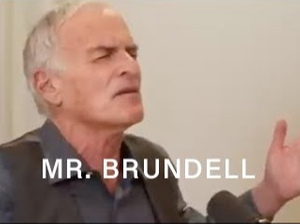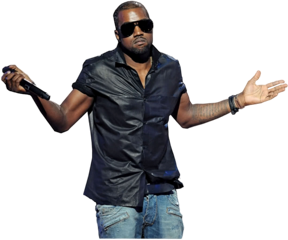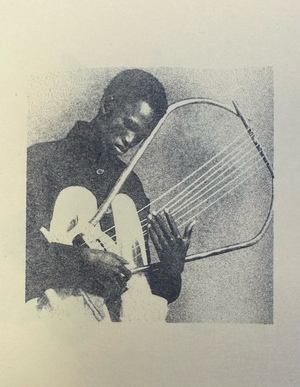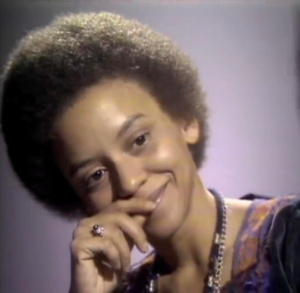 Artisdead
ArtisdeadWow this is so funny I forgot to laugh
Btw did u send me the Non-Binary coins you owe me Art? I'm tired of waiting don't make me send the booty bandits at your door...
 Q3D
Q3DBtw did u send me the Non-Binary coins you owe me Art? I'm tired of waiting don't make me send the booty bandits at your door...
Sorry can you wait a few weeks
Had to use them to fund my album
(Out now btw)Will repay you when I recouperate them
 Scratchin Mamba
Scratchin MambaThe tradition of all dead generations weighs like a nightmare on the brains of the living.....
"Where the social constructivist climate of opinion prevails, the meaning of “tradition” contracts into arbitrary custom and convention. At best, traditions are perceived to be no more than the fossilized remains of a distant—and therefore irrelevant—past. At worst, they are assumed to have been imposed on societies by those with ulterior motives, such as the synthetic contriving of national identity (as theorized by Eric Hobsbawm) or, somewhat more unimaginatively, the brute assertion of power. While such interpretations account for specific instances where traditions have been exploited, they by no means represent the essence of tradition as a concept which was, at least traditionally, far subtler than this. In fact, philosophers often conceived of tradition as a means of transcending the arbitrariness of everyday life; tradition was not considered to be merely incidental to its sociocultural environment, but rather as a vessel of truths existing beyond it.
Of course, through the lens of historical materialism—one that inevitably permits only a two-dimensional view—such a claim may appear unfounded, overly-imaginative, or perhaps susceptible to an overly romanticized impression of the past. Indeed, it is far more appealing for the modern mind to reduce all phenomena to their tangible sociocultural “causes.” Yet, explanations that account only for material causality do not do justice to the immaterial precepts around which tradition, being an essentially metaphysical pursuit, revolves; tradition is a means of establishing permanence in an otherwise contingent and chaotic world. It is, moreover, a means of translating ineffable truth into an intelligible language. In this sense, tradition elevates communities beyond their particulars and toward universal truths, even if its appeal tends to lie in its cherished familiar forms.
Indeed, the term “tradition” derives from the Latin tradere, which denotes the act of “handing over” or “giving up.” While exoterically this refers to the literal handing over or bestowing of customs to each generation, a more perceptive interpretation could render tradere the “giving up” of oneself to something higher. Approached metaphysically, tradition can be conceived of as possessing the noetic power to orient the soul toward a higher order of reality. In this understanding, tradition is not merely a set of conventions imposed on individuals by agents desiring to exert power or control—as the social constructivist interpretation would presume—but a shared means for individuals “below” (that is, in the temporal world) to collectively rise above. Understood this way, tradition need not be understood as an inherently dogmatic force, but rather as something that collectively inspires."
 maxx
maxx"Where the social constructivist climate of opinion prevails, the meaning of “tradition” contracts into arbitrary custom and convention. At best, traditions are perceived to be no more than the fossilized remains of a distant—and therefore irrelevant—past. At worst, they are assumed to have been imposed on societies by those with ulterior motives, such as the synthetic contriving of national identity (as theorized by Eric Hobsbawm) or, somewhat more unimaginatively, the brute assertion of power. While such interpretations account for specific instances where traditions have been exploited, they by no means represent the essence of tradition as a concept which was, at least traditionally, far subtler than this. In fact, philosophers often conceived of tradition as a means of transcending the arbitrariness of everyday life; tradition was not considered to be merely incidental to its sociocultural environment, but rather as a vessel of truths existing beyond it.
Of course, through the lens of historical materialism—one that inevitably permits only a two-dimensional view—such a claim may appear unfounded, overly-imaginative, or perhaps susceptible to an overly romanticized impression of the past. Indeed, it is far more appealing for the modern mind to reduce all phenomena to their tangible sociocultural “causes.” Yet, explanations that account only for material causality do not do justice to the immaterial precepts around which tradition, being an essentially metaphysical pursuit, revolves; tradition is a means of establishing permanence in an otherwise contingent and chaotic world. It is, moreover, a means of translating ineffable truth into an intelligible language. In this sense, tradition elevates communities beyond their particulars and toward universal truths, even if its appeal tends to lie in its cherished familiar forms.
Indeed, the term “tradition” derives from the Latin tradere, which denotes the act of “handing over” or “giving up.” While exoterically this refers to the literal handing over or bestowing of customs to each generation, a more perceptive interpretation could render tradere the “giving up” of oneself to something higher. Approached metaphysically, tradition can be conceived of as possessing the noetic power to orient the soul toward a higher order of reality. In this understanding, tradition is not merely a set of conventions imposed on individuals by agents desiring to exert power or control—as the social constructivist interpretation would presume—but a shared means for individuals “below” (that is, in the temporal world) to collectively rise above. Understood this way, tradition need not be understood as an inherently dogmatic force, but rather as something that collectively inspires."
The bit about universal truths is just obvious nonsense since traditions are everything but universal and it doesn't seem like this person really understands historical materialism, he doesn't really says anything that contradicts it and seems to think historical materialism means all traditions are imposed by the brute assertion of power which is absolutely not the case.
And tradition is also not made out to be arbitrary custom and convention lol
 Scratchin Mamba
Scratchin MambaThe bit about universal truths is just obvious nonsense since traditions are everything but universal and it doesn't seem like this person really understands historical materialism, he doesn't really says anything that contradicts it and seems to think historical materialism means all traditions are imposed by the brute assertion of power which is absolutely not the case.
And tradition is also not made out to be arbitrary custom and convention lol
"Tradition, among other things, brings people together over a set of shared ideals, therefore upholding positive conceptions of truth. In its regulation of a given community’s beliefs and behaviors, tradition enables the realization of Truth, Goodness, and Beauty and yet, somewhat paradoxically, does so in ways which are relative to that community. This view can be found richly articulated in the political philosophies of Neoplatonic thinkers such as the Muslim polymath al-Fārābī. For al-Fārābī, traditions—particularly of the didactic kind (that is, folklore and storytelling)—rely on some degree of relativism in order for the eternal principles contained within them to become perceptible. "
 Artisdead
ArtisdeadSorry can you wait a few weeks
Had to use them to fund my album
(Out now btw)Will repay you when I recouperate them
NOW. ART.
 maxx
maxx"Tradition, among other things, brings people together over a set of shared ideals, therefore upholding positive conceptions of truth. In its regulation of a given community’s beliefs and behaviors, tradition enables the realization of Truth, Goodness, and Beauty and yet, somewhat paradoxically, does so in ways which are relative to that community. This view can be found richly articulated in the political philosophies of Neoplatonic thinkers such as the Muslim polymath al-Fārābī. For al-Fārābī, traditions—particularly of the didactic kind (that is, folklore and storytelling)—rely on some degree of relativism in order for the eternal principles contained within them to become perceptible. "
I would say there are "universal truths" if you wanna call it that, but there are plenty of "truths" that traditions uphold that don't have anything universal about them and are completely particular to certain cultures, so what is the purpose of those traditions according to that way of thinking? Are those traditions not worth keeping? What about traditions that go against these universal truths? Or are traditions somehow by definition supposed to be based on these truths?
Either way to bring it back to this topic, gender and more specifically gender roles that are different in different times and different cultures are definitely not one of those universal truths.
And did anyone take into account that some cultures have gender breaking stuff in their traditions
 Drry
DrryThem titties very womanly

They gonna say I'm overreacting but this is legit transphobic and enbyphobic

 Q3D
Q3DThey gonna say I'm overreacting but this is legit transphobic and enbyphobic

Me trying to figure out what this last word means

 BlueChew Sean
BlueChew SeanMe trying to figure out what this last word means

Non-binaryphobe basically
 NEW EQUITY
NEW EQUITYIsn’t that a different conversation tho? I totally understand where you’re coming from and I empathize with the victims. But isn’t the conversation about gender identity treading into new territory as far as changing the way we look at biology and science in general?
The f*** is a non binary then. That s*** ain’t real either but an idea in peoples head
Self awareness on negative 110
 Scratchin Mamba
Scratchin MambaI would say there are "universal truths" if you wanna call it that, but there are plenty of "truths" that traditions uphold that don't have anything universal about them and are completely particular to certain cultures, so what is the purpose of those traditions according to that way of thinking? Are those traditions not worth keeping? What about traditions that go against these universal truths? Or are traditions somehow by definition supposed to be based on these truths?
Either way to bring it back to this topic, gender and more specifically gender roles that are different in different times and different cultures are definitely not one of those universal truths.
yes some traditions are void of eternal virtues, we dont rate those!
but yes, about gender... sexual and gender expression has long been multifarious and fluid and ambiguous gender expression is, as you know, well documented throughout history. problems arise though when that fact meets with the broader, deconstructionist gender theories of academics like Judith Butler (or rather, Judith Butler in particular) who use skepticism, irreverence and irony to challenge the very notions of the existence of any objective reality, truth, morality, a fundamental human nature or essence
Truly some bannable posts itt.

All ima say is it’ll do a lot of niggas on this site so much good if yall like…idk made an attempt to genuinely socialize irl with ppl that live entirely different lifestyles than yall. Like, genuinely listening (and not just waiting to talk) to them and actively taking in what they saying instead of forcing them to be your encyclopedia research on that entire lifestyle.
 insertcoolnamehere
insertcoolnamehereThe f*** is a non binary then. That s*** ain’t real either but an idea in peoples head
Self awareness on negative 110
I was kinda delirious when writing all this

Relax tho sis
